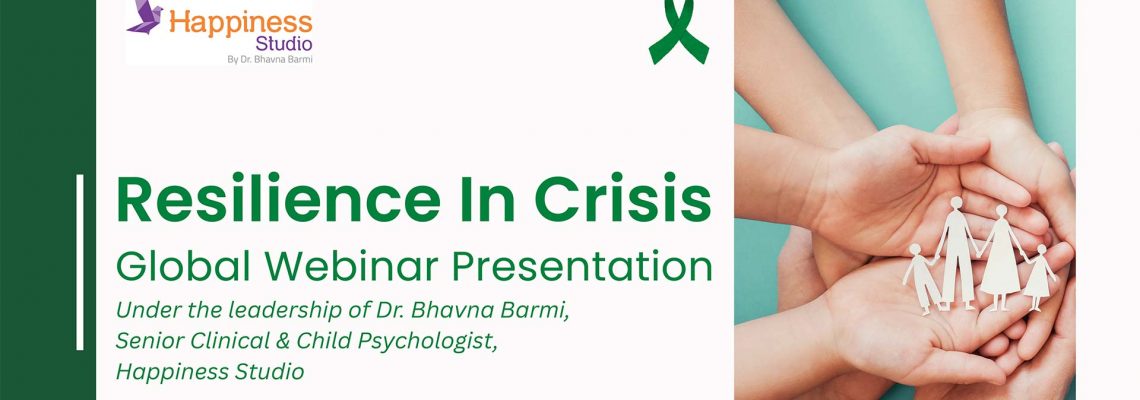Resilience in Crisis
Webinar Concept Note
Hosted by: Happiness Studio
Date / Time: 10th October 2025, 1pm-2pm
Introduction
Happiness Studio is honoured to host this global webinar in alignment with WHO’s 2025 theme: “Mental Health Support in Humanitarian Emergencies.” Experts from mental health, military, research and academics, social activism, and community resilience domains shared insights on emotional well-being, coping strategies, and recovery in crises.
Concept Idea
Crises, whether global or personal, test our emotional endurance. Understanding resilience is essential for individuals and communities alike. Every crisis deserves an empathetic response.
Objectives
- Explore psychological impacts of crises on individuals and communities.
- Identify challenges in making mental health support accessible in crises.
- Share strategies for building emotional resilience.
- Emphasize the role of community and social support when formal systems are disrupted.
- Highlight evidence–based mental health support in humanitarian emergencies.
Webinar Themes & Discussion Points
1. WHO Theme & Alignment – Dr. Bhavna Barmi
- Spotlight on WHO’s theme and initiative alignment.
2. Psychological Impact in Conflict – Dr. Ram Ganjoo
- Effects of war and trauma on emotional well-being.
3. Mental & Psychiatric Concerns – Dr. Ritika Singh
- Understanding mental, emotional, and psychiatric impact of crises.
4. Critical Support Infrastructure – Dr. Mano Manoharan
- Essential systems and resources that enable timely aid and resilience.
5. Accessibility Challenges – Dr. Mahima Kapoor
- Barriers in making mental health support available.
6. Community Sensitivity – Shree Singh
- Maintaining empathy in communities facing continuous hardship.
7. Social Support Networks – Dr. Mano Manoharan
- Role of community support when formal care is disrupted.
8. Personal Triggers & Resilience – Dr. Rakesh Chawla
- Understanding triggers and building coping strategies.
9. Recognizing & Addressing Triggers – Dr. Mahima Kapoor
- Early recognition of stress and preventive interventions.
10. Understanding Resilience – Dr. Swaleha Mujawar
- Growth through adversity and cultivating adaptability.
11. Mind-Body Connection – Dr. Ram Ganjoo
- Importance of grounding, mindfulness, and physical regulation.
12. Evidence-Based Recovery Techniques – Dr. Bhavna Barmi
- Exploring practical, research-backed approaches to recovery.
Key Takeaways
- Resilience is both personal and collective.
- Community support is essential when formal systems fail.
- Early recognition and intervention can prevent long-term mental health struggles.
- Evidence-based techniques (PFA, CBT, mindfulness) are effective in recovery.

